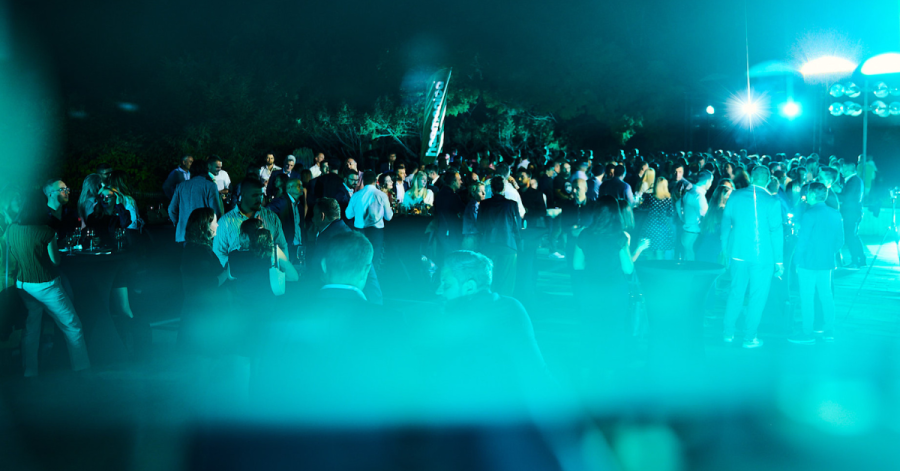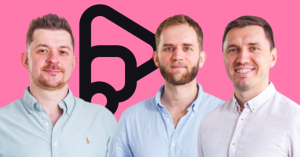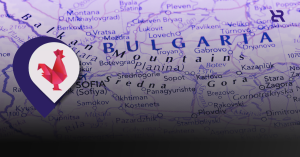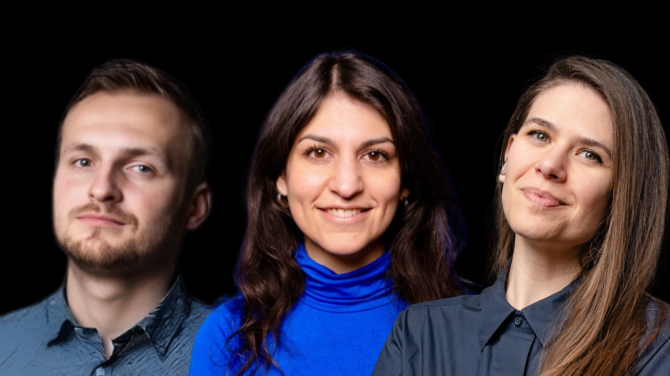For this piece, I could have asked ChatGPT for an overview of how the local or regional ecosystem has evolved over the past decade. I could have thrown some big numbers right of the bat (I will further down, don’t worry), but what you cannot ask a chatbot is how it all felt to be part of it, what we actually went through to get here.
How do you measure success? How do you determine whether it was all worth it? This can only be said by someone who has worked and seen it firsthand.
Crazy as a compliment
Is 10 years a lot? In startup terms, it is practically a lifetime.
But there weren’t many startups 10 years ago. There were some — a few hundred. Now there are a few thousand, just in Bulgaria alone. In the region, the number has grown to several thousand more. Back then, there were only a few funds, securing a few million in funding. Now we’re talking about billions. Supporting structures, accelerators? There weren’t many.
And then we had the big bang of the startup ecosystems. Around 10 years ago, a new universe emerged with the introduction of new instruments by the Fund of Funds and a handful of local players, who believed it was possible. Or they just enjoyed the game.
We witnessed a new wave of entrepreneurs who were driven by unconventional business, not eager to follow the corporate world, but to create a new one. Did they know back then that 90% of startups actually never scale? Would they have done it anyway? I think they would. This is the flame one must possess to bet on the impossible, in order to make it possible. Because in the world of entrepreneurs, crazy is a compliment (as Endeavor co-founder Linda Rottenberg says).
As an ex-team member of Endeavor, now partnering with them as part of The Recursive team, I was asked if I would be interested to write something for the B-day, celebrating the 10th anniversary. After all, it was my celebration as well — I was one of the first employees when Endeavor launched in Bulgaria. However, I realized it is a celebration of everyone in the ecosystem, marking ten years of creating and building to reach this state. An occasion where we can all take a moment to reflect and celebrate.
At the end of the birthday evening, while listening to the speeches, one question stayed with me: How do you measure success?
A decade of rising
Numbers can reveal a great deal about the rise of the startup ecosystem. When I started at Endeavor, there were around 20 offices, now more than 40 in emerging markets. The portfolio companies went from generating $18 million to $180 million, and over 10,000 jobs created along the way. That’s not hype — that’s a result of hard work and smart support.
But it wasn’t like that ten years ago. People didn’t even understand the concept of startup and founders. Back then, one of our first jobs was to build a name for ourselves. Soon after, we realized that we first had to educate people about what a startup really is and why entrepreneurship even matters. Our “brand building” began by explaining why the ecosystem matters and the importance of mentorship, funding, networks, and supporting structures.
If you’re part of the ecosystem, you must know that globally, about 90% of startups fail, with roughly 10% closing within the first year and around 70% not surviving past their fifth year. Of those that do survive, fewer than 1% ever achieve “unicorn” status. The reasons for failure are often predictable: lack of market need (affecting 35–40% of startups), running out of cash, issues within the founding team, intense competition, or flaws in the business model.
Despite these challenges, the region has seen increasing investment, stronger support networks, and a maturing entrepreneurial culture, slowly improving survival rates and creating opportunities for scale-ups.
Looking broader, the CEE region now boasts roughly 50 unicorns, over half of which appeared in just the past two years. Southeast Europe (SEE) claims about 10 unicorns, including Bulgaria’s Payhawk, Slovenia’s Outfit7, and Romania’s UiPath, with another 11 on track. A decade ago, that number was… basically zero.
Looking at the bigger picture, the CEE region has over 26,000 active startups, and SEE likely hosts several thousand — Bulgaria being one of the most prominent contributors.
Now, let’s take a glimpse at the broader region and see what the numbers tell us.
The 50× leap
According to Dealroom, the SEE startup ecosystem has grown in value 50 times over the last decade, showing just how fast the landscape has evolved. Over the past ten years, the SEE ecosystem has transformed dramatically, and a few key drivers stand out. First, talent: local engineers, developers, and founders returning from abroad brought skills, ambition, and new perspectives, raising the quality and scale of startups.
Then there’s funding — a decade ago, Bulgaria had maybe half a dozen active VC funds managing less than €50 million. One early boost came from the Fund of Funds, which channeled public and EU resources into local VC, giving startups and investors their first push. Today, local funds manage over €500 million, and regional investments have skyrocketed, with CEE startups raising over €2 billion annually.
Supporting structures have also multiplied: accelerators, incubators, and co-working spaces now provide not just capital but also mentorship, networking, and know-how.
Finally, the cultural shift has been massive — founders are bolder, willing to take risks, and more comfortable with failure as part of the journey. These factors combined have turned what was once a fledgling ecosystem into a mature, competitive regional hub.
If this decade has shown us anything, it’s that with the right mix of talent, capital, mentorship, and ambition, the region can surpass expectations.
It is an open ending…
I am reading a book right now. It’s not a business book — it is completely unrelated to the startup world, called The Choice by Edith Egar. Yet sometimes I find it more business-enriching than many books directly about business. It’s teaching about resilience. About overcoming fears. About being authentic.
In the end, aren’t these the major qualities a founder must possess? Or the belief VCs must hold as they continue searching for the next unicorn? Or the empathy supporting organizations have that enables them to help founders scale their operations further?
This applies to the thousands of employees who trust the process in the startup world, rather than opting for secure corporate jobs. And the corporates supporting and merging with startups. The founders who are paying forward. Because this is the true ecosystem —everyone has their role and value, and one cannot operate without the other. From those who paved the way 10 years ago to those who continue to scale and believe, we can now have our first unicorn.
And here’s to the next 10! I can only say that seeing the ecosystem now — buzzing, ambitious, and internationally recognized — it’s clear we’ve come a long way.








